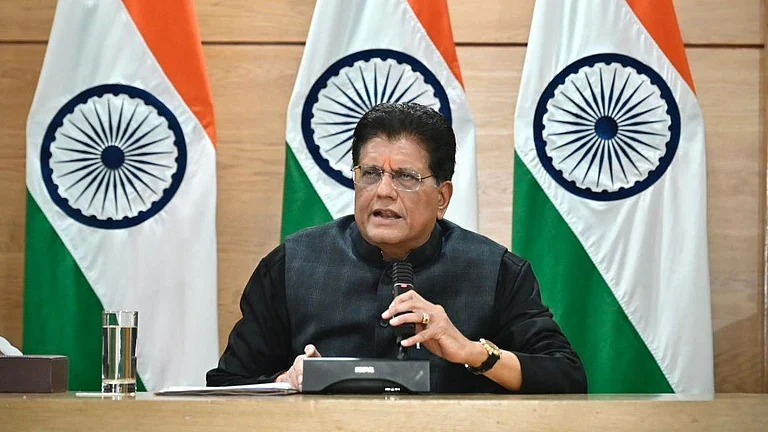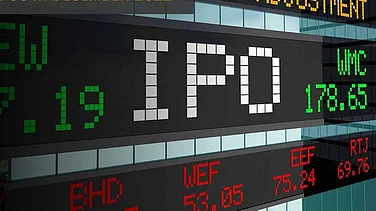Union Commerce Minister Piyush Goyal, on August 21, stated that the growth of e-commerce is not an achievement but rather a cause for concern. Goyal made these remarks during the launch event of a report titled 'Net Impact of E-Commerce on Employment and Consumer Welfare in India'.
Voicing concern about the rise of online shopping in India, Goyal mentioned that the convenience of e-commerce might harm one’s lifestyle. “Of course, we'll end up becoming a country of couch potatoes, watching OTT, and having food at home every day."
Goyal’s comment comes at a time when the e-commerce sector is booming in India. The market is supposed to hit $325 billion by 2030, with rural India leading the growth. This is as per a report by Invest India, which indicates that the market value of e-commerce in India is $70 billion now.
So, what made Goyal raise concern about the booming segment? Here’s a closer look at the same:
Predatory Pricing by E-Commerce Players
One of the concerns raised by the minister is that e-commerce players follow “predatory pricing." He reportedly asked, “Are predatory pricing policies good for the country?”
Predatory pricing basically refers to low pricing that firms set. The price becomes so low that it becomes hard for other companies to compete based on it.
A price war, as a matter of fact, is going on in this segment. For example, Flipkart Minutes is reportedly selling items at a 10 per cent lower price compared to Blinkit. As per brokerage firm UBS, “While the lower pricing could be an initial market entry strategy, we will keep an eye on prices as Flipkart expands this offering to more areas within Bangalore and to other cities.”
Goyal added that the rise of predatory pricing in the country is a concern for small retailers. Time and again, it is said that small retailers are affected due to the surge of e-commerce platforms in the country. Speaking to the Economic Times, Delhivery CEO Sahil Barua said, “The reality is quick commerce is eating share from kirana stores.”
Additionally, a PwC report titled ‘How India Shops Online’ says that the “lack of discounts and special offers in physical stores, along with large crowds in malls during weekends, are some of the reasons why urban dwellers prefer to shop online.”
While online sales is increasing, several retailers believe that e-commerce is not a threat for them. A study published by NeoGrowth in 2023 indicates that more than 80 per cent of retailers in India do not see e-commerce as a threat. While 18 per cent of the respondents have mentioned that their sales are impacted by e-commerce sales. Around 3,000 retailers were covered in the study from 25 cities.
E-Commerce Should Be Citizen Centric, Says Goyal
Goyal said at the event, "We have to see that this convenience [of e-commerce] and connectivity is citizen-centric and that it socialises benefits to a larger section of society." While highlighting that e-commerce is here to stay, Goyal added that one should be cautious about the same.
He added that e-commerce has a huge role to play when it comes to shaping consumer behavior, especially for the younger generation. He also mentioned that social activities such as going out with friends are important indicators of human development.
The surge in the use of e-commerce platforms has led to several behavioral changes, including impulsive buying, personalized shopping, and more. Additionally, preference for quicker delivery has increased significantly, indicating a surge in quick commerce apps in the country. The quick commerce market has been increasing significantly in the country, with a $2.8 billion current market size, as per Redseer Strategy Consultants. With a 77 per cent increase in its GMV last year, Q-commerce demonstrated that it was able to maintain the Covid-led momentum it had between 2019 and 2022, adds the report.
Amazon’s India Investment Should Not Be Celebrated, Says Goyal
Taking a critical stand on Amazon, Goyal said that the e-commerce platform’s decision to invest $1 billion in India should not be celebrated.
He said, “When Amazon says that we are going to invest a billion dollars in the country, we celebrate, and we forget that the billion dollars are not coming in for great service or investment to support the Indian economy. They made a billion-dollar loss in their balance sheet that year; they had to fill in that loss.”
He added that the US store was only making up for its losses in India rather than contributing significantly to the Indian economy. Amazon’s Rs 6,000 crore loss sounds like predatory practice, he added. “If you make Rs 6,000 crore loss a year, doesn’t it sound like predatory pricing to you? They are, after all, an e-commerce platform, and they are not legally allowed to do B2C. However, the reality is all of you buy on these platforms. How are they doing it? Should it not be a matter of concern for us?” he questioned. In India, Amazon and Flipkart are only allowed to be like middlemen, connecting buyers and sellers. They can't own the products they sell. So basically, they only connect buyers and sellers.
Meanwhile, backing the minister, Ola CEO Bhavish Aggarwal posted on X that they are building the future of e-commerce with kirana shops and small merchants via government-backed ONDC. Ola recently announced its quick commerce plans and mentioned that they would make automated dark stores.































